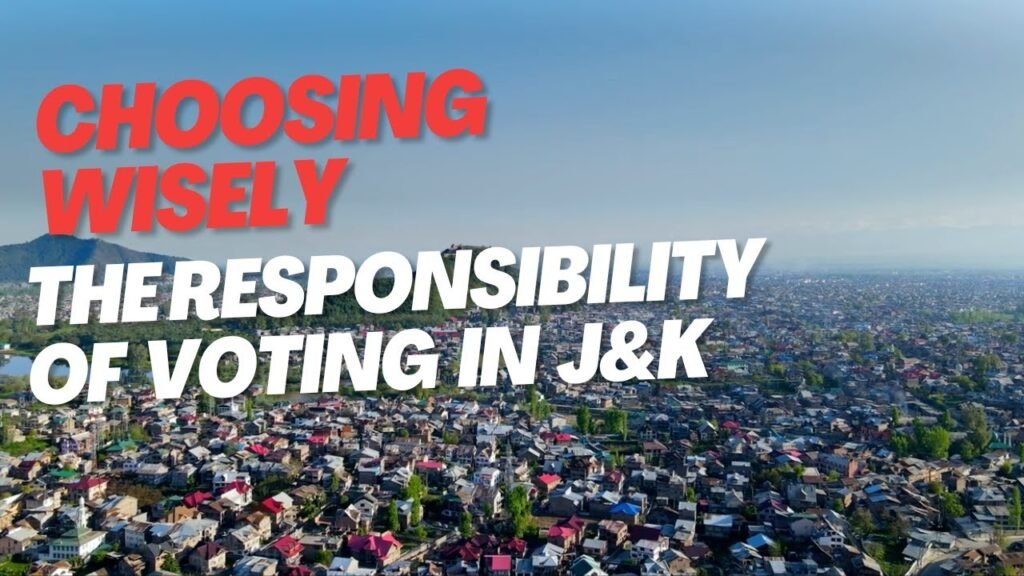In a democracy, the right to vote is sacrosanct, a fundamental privilege that empowers citizens to shape the course of their nation’s destiny. Yet, this privilege is not merely about casting a ballot; it carries the weight of responsibility the responsibility to choose wisely, to discern between empty promises and tangible actions, to elect representatives who genuinely serve the public good. Nowhere is this responsibility more critical than in regions like Jammu and Kashmir , where the stakes are not only political but also deeply intertwined with complex socio-cultural dynamics and historical legacies. The essence of democracy lies not in the act of voting alone, but in the collective endeavour to uphold the principles of justice, equality, and progress. In J&K, where the echoes of historical grievances and political aspirations reverberate through the rugged terrain, the power of the ballot becomes an instrument of both change and continuity. The people of J&K are not merely voters; they are custodians of a legacy, inheritors of a struggle for self-determination, and architects of a future fraught with both challenges and opportunities. When citizens cast their votes in J&K, they do so not only as individuals but as representatives of diverse communities, each with its unique set of concerns and aspirations. Here, the ballot becomes a symbol of agency, a means to assert one’s voice in a landscape shaped by competing narratives and entrenched interests. In such a context, the imperative to vote wisely transcends partisan loyalties; it becomes a moral imperative, a solemn duty to ensure that those who ascend to positions of power are committed to serving the greater good. The choice before the voters of J&K is not merely between political parties or candidates; it is a choice between competing visions of governance, divergent paths to peace and prosperity, and contrasting approaches to addressing the multifaceted challenges that confront the region. In a land where every vote carries the weight of history, where every decision reverberates across generations, the electorate must exercise its franchise with diligence and discernment. Moreover, in J&K, where the scars of conflict are still raw, where the wounds of division are yet to heal, the act of voting assumes added significance. It becomes a testament to resilience, a reaffirmation of faith in the democratic process, and a rejection of the forces of discord and despair. In exercising their right to vote, the people of J&K signal their determination to forge a path of peace, progress, and reconciliation, transcending the narrow confines of identity and ideology. The right to vote is not merely a privilege; it is a sacred trust, a covenant between citizens and their representatives, a bond forged in the crucible of democracy. In Jammu and Kashmir, where the imperatives of history and the exigencies of the present converge, the act of voting becomes a clarion call to collective action, a beacon of hope amidst the tumult of uncertainty. As the people of J&K prepare to exercise their franchise, they do so not only for themselves but for generations yet unborn, mindful of the weight of their choices and the promise of a better tomorrow.
Keep Reading
Add A Comment



